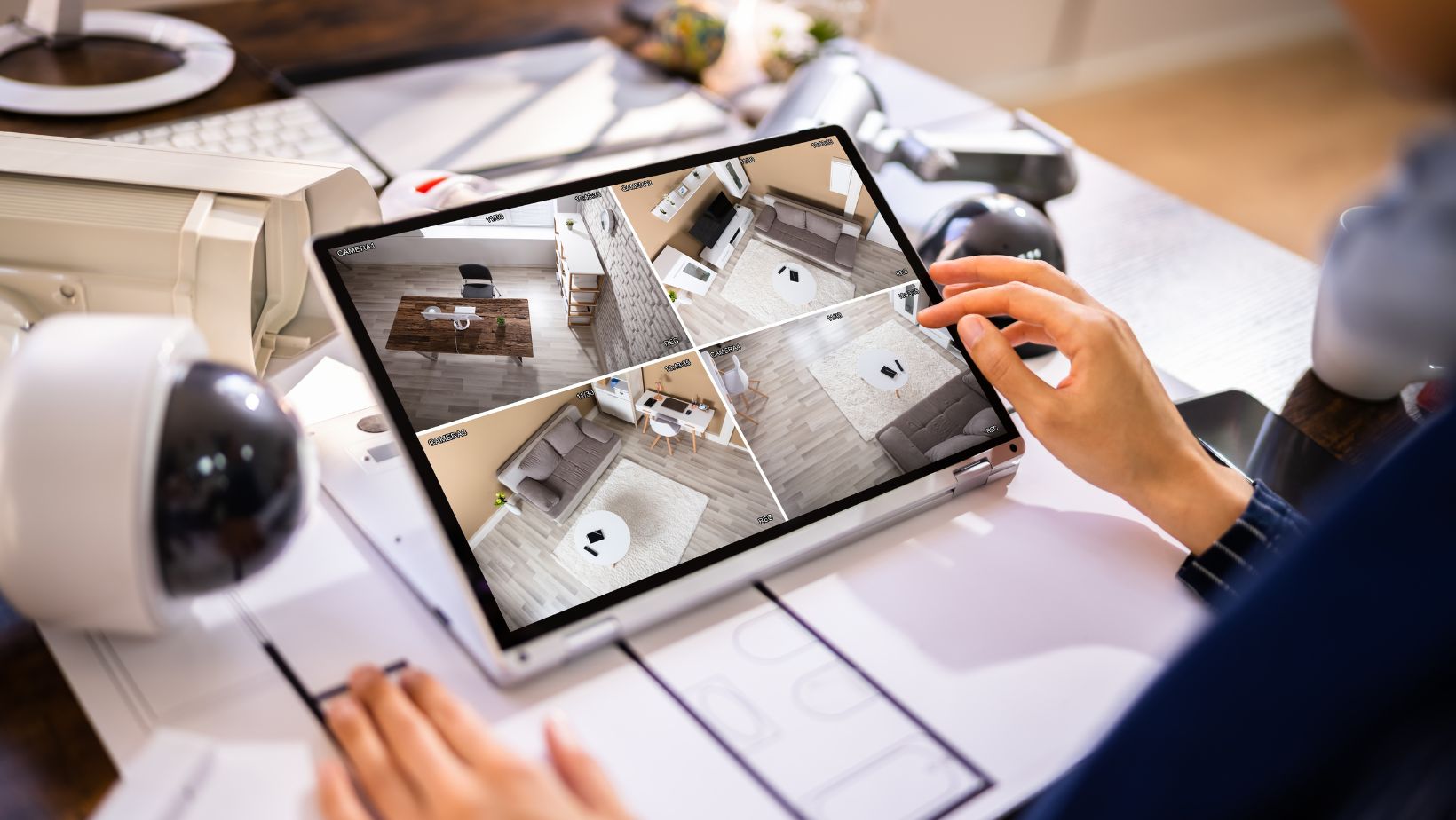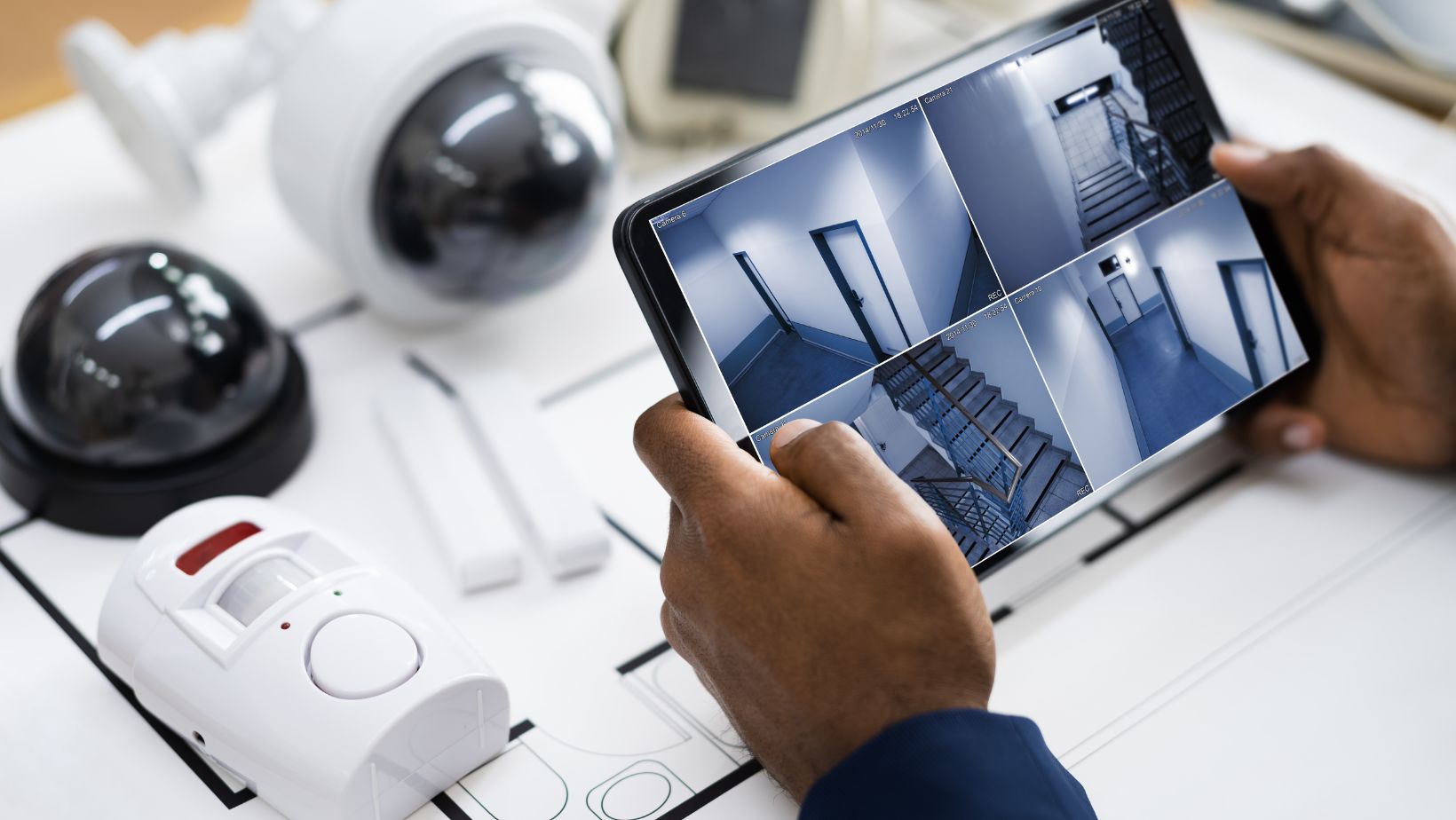Fire safety should be a top priority whether you own a home, run a business, or manage public spaces. Fire can strike at any time and cause devastating damage to both property and human lives. To protect against this threat, proper fire safety equipment and Advanced Fire Safety Solutions are crucial. This blog post explores the evolution of home security, the benefits of smart security systems, and why investing in these technologies can significantly reduce long-term safety expenses.
The Evolution of Home Security
A Look Back in Time
Home security has come a long way from guard dogs and simple locks. Historically, our ancestors relied on physical barriers and basic mechanisms to keep their families safe. These methods were somewhat effective but were also easily circumventable by determined intruders.
Enter the Digital Age
With the advent of digital technology, home security has transformed. Smart security systems have revolutionized how we protect our homes, offering a level of control and peace of mind that was previously unimaginable. These systems integrate seamlessly with our daily lives, providing real-time updates and remote monitoring capabilities.
Modern Homes, Modern Solutions
The impact of smart security systems on modern homes is profound. They provide enhanced protection and contribute to the overall smart home ecosystem. This integration allows homeowners to manage multiple aspects of their home from a single device, making life more convenient and secure.
Benefits of Smart Security Systems
Enhanced Safety
One of the most significant benefits of smart security systems is enhanced safety. These systems use advanced sensors, cameras, and AI-driven analytics to detect unusual activities and alert homeowners instantly. For instance, a smart doorbell camera can notify you if someone approaches your front door, even if you’re miles away.
Energy Efficiency
Smart security systems are not just about protection; they also contribute to energy efficiency. Many systems have smart thermostats and lighting controls that adjust based on occupancy and time of day.

This feature helps reduce energy consumption and lower utility bills, offering a dual benefit of safety and savings.
Cost Savings
Investing in smart security systems can lead to substantial cost savings in the long run. Insurance companies often offer discounts to homeowners who have installed these systems. Additionally, preventing theft and damage means fewer expenses related to repairs and replacements.
Types of Smart Security Systems
Smart Cameras
Smart cameras are a staple in modern home security. They offer high-definition video capture, night vision, and motion detection. Some even come with facial recognition technology, allowing you to differentiate between family members and strangers. However, they can be expensive and require a stable internet connection for optimal performance.
Sensors and Alarms
Sensors and alarms form the backbone of any smart security system. These devices detect motion, break-ins, and environmental changes like smoke or gas leaks. They are relatively affordable and easy to install, making them a popular choice for homeowners.
Smart Locks
Smart locks offer a futuristic approach to home security. These devices allow you to lock and unlock your doors remotely using your smartphone. They can also be programmed to grant temporary access to guests or service providers. While convenient, smart locks can be pricey and may require professional installation.
Factors to Consider Before Investing
Budget
Before investing in a smart security system, it’s essential to consider your budget. While these systems offer numerous benefits, they can also be quite costly. Assess your financial situation and determine how much you will spend on home security.
Home Size
The size of your home plays a crucial role in determining the type of smart security system you need. Larger homes may require more cameras and sensors, while smaller homes can do with fewer devices. Ensure that the system you choose covers all critical areas of your home.
Integration with Existing Devices
If you already have smart devices installed in your home, it’s essential to choose a security system that integrates seamlessly with them. Compatibility ensures that all devices work harmoniously, providing a comprehensive security solution.
Monitoring Options
Consider the monitoring options available when selecting a smart security system. Some systems offer professional monitoring services that notify authorities in an emergency, while others rely on self-monitoring through mobile alerts and notifications. Evaluate which option best suits your needs and lifestyle, ensuring you have the desired level of security and peace of mind.
Future Trends in Home Security
AI and Machine Learning
AI and machine learning are set to dominate the future of home security. These technologies will enable systems to learn from past incidents and predict potential threats, offering a proactive approach to home security.
5G Connectivity
The advent of 5G will revolutionize smart security systems by providing faster and more reliable connectivity.

This improvement will enhance the performance of real-time monitoring and remote control features, making smart security systems more efficient.
Integration with Smart Homes
As smart homes become more prevalent, integrating security systems with other smart devices will become seamless. This trend will allow for more comprehensive and user-friendly security solutions, enhancing the overall smart home experience.
Biometric Authentication
Biometric authentication is poised to become a cornerstone of home security. By using unique biological traits such as fingerprints, facial recognition, or even voice patterns, biometric systems provide unparalleled security. This technology minimizes the risks associated with traditional security methods like passwords or key codes, offering a more secure and convenient way to safeguard homes.
Cybersecurity for IoT Devices
As smart homes become increasingly interconnected, the cybersecurity of IoT devices will take center stage. Future home security systems will prioritize robust cybersecurity measures to protect against hacking and data breaches. Enhanced encryption, regular software updates, and sophisticated threat detection algorithms will be essential to ensure the safety and privacy of smart home environments.
Final Thoughts
Investing in smart security systems is not just about protecting your home; it’s about investing in peace of mind and long-term cost savings. These systems of Advanced Fire Safety Solutions offer numerous benefits, from enhanced safety and energy efficiency to significant cost savings. By understanding the different types of systems available and considering factors like budget and home size, you can make an informed decision that best suits your needs.
















